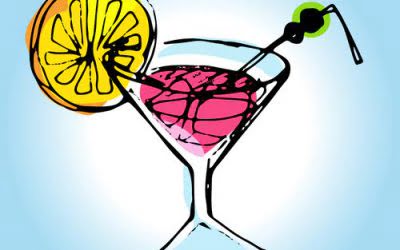HPPD symptoms, however, persist long after the normal active life of the drug and can be either episodic or mostly continuous. In some cases, the condition becomes chronic, while in other Sobriety instances, people can suppress the feelings and function normally. Hallucinogen Persisting Perception Disorder is a DSM-5-listed condition in which people experience lasting, debilitating changes to their visual perception after using drugs, especially psychedelic drugs.
- These substances can make you see colors and patterns that aren’t really there, and they work by changing how your brain processes information.
- Changes in serotonin levels, a neurotransmitter often influenced by hallucinogens, may also play a role.
- Type 1 HPPD is typically experienced as brief, random “flashbacks.” On the other hand, type 2 HPPD is generally long term, disturbing, and pervasive.
- Some of the most crucial side effects affect the mind, producing perceptual distortions.
How to Differentiate Between Schizophrenia and Hallucinogen Persisting Perception Disorder
- Thus, the serotonergic antidepressants administered during this period proved largely ineffective.
- Therapy can help people with the disorder learn to manage stress and develop coping strategies for dealing with HPPD vision symptoms.
- The Cover Story/Power Trip podcast revealed that a participant in a MAPS MDMA trial developed lasting visual hallucinations, albeit ones that evolved to become non-distressing.
- Furthermore, individuals who have schizophrenia and HPPD may not have HPPD-related perceptual symptom improvement 10.
If symptoms resolve after detoxification or once the substance clears the body, a diagnosis of substance-induced psychotic disorder is more likely. On the other hand, if visual disturbances persist long after substance use, HPPD may be the more accurate diagnosis. Persistent visual and perceptual disturbances can heighten anxiety, particularly when individuals are uncertain if their symptoms will ever resolve. Fear of losing control or experiencing another flashback can further intensify anxiety. Altered neurotransmitter activity in brain pathways related to fear and stress may contribute to this symptom.
Description of Hallucinogen Persisting Perception Disorder

This means that insurance plans sold through the ACA marketplace must cover addiction treatment services, including detoxification, inpatient and outpatient treatment, and aftercare programs. However, the specific details of coverage may vary depending on the insurance plan and the individual’s specific situation. Additionally, some insurance plans may require prior authorization or limit the amount of treatment covered. Therefore, it’s important to understand your insurance coverage before beginning treatment. Alamo Behavioral Health Addiction Treatment Center is dedicated to providing comprehensive and effective residential treatment for individuals seeking recovery from addiction.

Hallucinogen-Induced Persisting Perception Disorder: A Case Report
Appearances of haloes that extend to a certain distance from the edge of the objects are another symptom of Hallucinogen Persisting Perception Disorder. Even if drug use occurred a decade or more in the past, it might be that HPPD is the cause of the problem. The good news is that hppd disorder HPPD flashbacks are not as overwhelming as a regular flashback might be.
- They will ask about your symptoms, medical history, and any substance use.
- However, people who experience “bad trips” can experience disturbing or scary sensations.
- This is based on a 2011 study conducted by Dr. Matthew Baggott (Co-founder of Tactogen) together with colleagues at Erowid.
- The prevalence of HPPD is not yet fully known due to the inherent challenges of diagnosing the disorder.
Psilocybin (Magic Mushrooms)

Talking about the experiences can help a person with HPPD process their own feelings and may reduce anxiety and stress about having the condition. From 2006 to 2008 the patient received fixed doses of sertraline (200 mg/day) for 13 months, citaloprame (20–30 mg/day) for 6 months and fluoxetine (20 mg/day) for 5 months. These selective serotonin reuptake inhibitors (SSRIs) alleviated depression but did not relieve the HPPD symptoms.